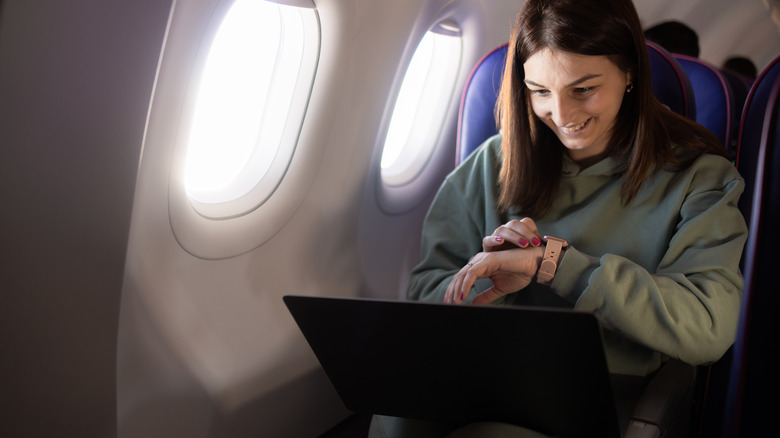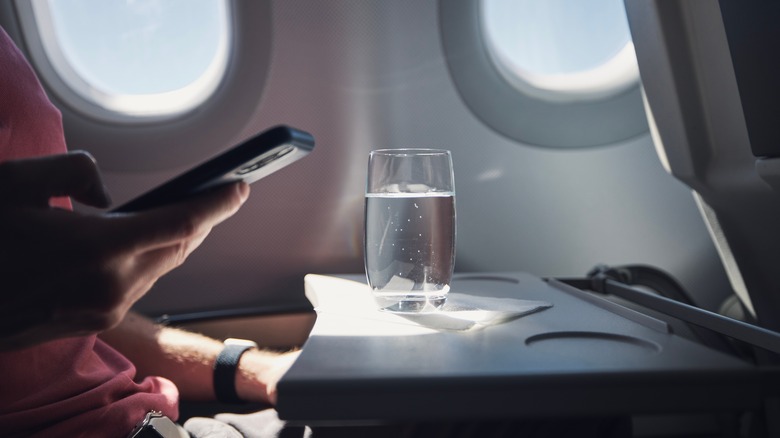Genius Tips To Help Prevent Jet Lag According To Rick Steves
International travelers will be well aware that there's nothing quite as bad as jet lag (except, maybe, dealing with lost luggage). Whether it's fighting sleep halfway through the day or laying wide awake at night while the clock flashes 3 a.m., flying across time zones can really throw your mind and body for a loop. To make matters worse, these types of disruptions are more than just an inconvenience — they can even affect the quality of your trip, transforming those first few days of exploration into a groggy blur.
The human body operates on a circadian rhythm, an internal clock that dictates our sleep-wake patterns. When this is disrupted, it takes time to readjust, especially if you're hopping between continents or traveling from one end of the world to the other. Thankfully, though, jet lag doesn't have to be the bane of your international travels. According to travel writer and author, Rick Steves, there are plenty of actionable steps you can take to minimize its effects and keep your journey enjoyable and invigorating from the moment you step foot off the plane.
Work with your body not against it
According to Rick Steves, the most important tip when it comes to beating jet lag is to work with your body, rather than against it. The travel expert advises that one great way to do this is by approaching your travel date as if you're setting off two days earlier than you actually are. This means keeping those last 48 hours free of any hectic activities and not overworking your body. Stay home, relax, and let yourself rest, and then you'll be able to embark on your adventure with your energy intact.
The same principle applies to your in-flight experience when you're traveling by plane. Once you're onboard, make the most of the downtime to catch up on even more rest. Adjust your watch to your destination's time zone, and try your best to sleep, or stay awake, as similarly as you would during that time. Then, once you've landed, avoid the urge to take a nap — especially if it's the middle of the day — and fight the temptation to go to bed until a reasonable time.
One surefire way to do this is instead of cooping yourself up in your hotel room trying to pry your eyelids open, hit the outdoors! Because jet lag relies heavily on your body's internal clock, a little bit of sunshine will actually help decrease the levels of melatonin — a hormone your body produces in the dark to help you sleep — that is released, keeping you awake and alert for longer.
Get a little extra help if you need it
If these preventive cures don't do it, there are plenty of added measures you can take to fight jet lag, one of which is melatonin. Steves notes that melatonin tablets, which are available over the counter in the United States and work to release the same hormone that your body already produces, could be a godsend. Take one and you'll be able to sleep through the night, which will then help your body adjust to the change in routine. This, coupled with a sleep mask, ear plugs, and essential oils can make catching some Zs a lot easier.
Alternatively, another way that frequent travelers agree will help you stay on the right side of jet lag is to watch what you eat and drink. First, obviously, avoid drinking any caffeinated beverages, soda, and/or alcohol. Although caffeine might help keep you awake, soda and alcohol will ultimately make you crash and alter the quality of your sleep as well. Instead, stick to water to rehydrate your body and choose meals that are heavy in fruits and vegetables. Your stomach may react badly to all that travel so do your best to keep things moving.


